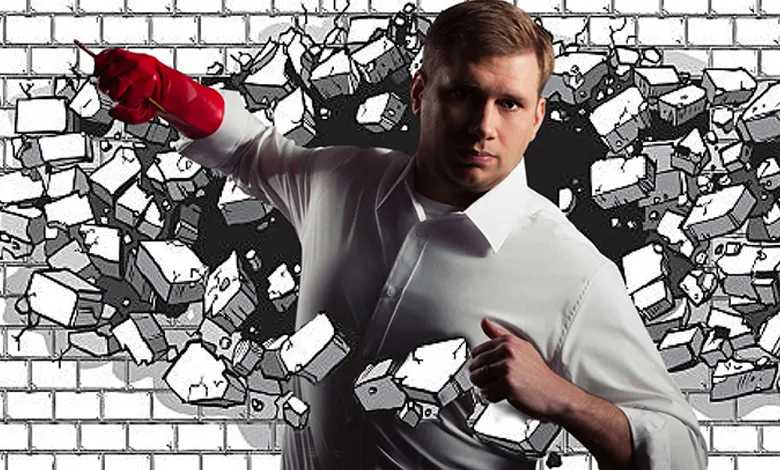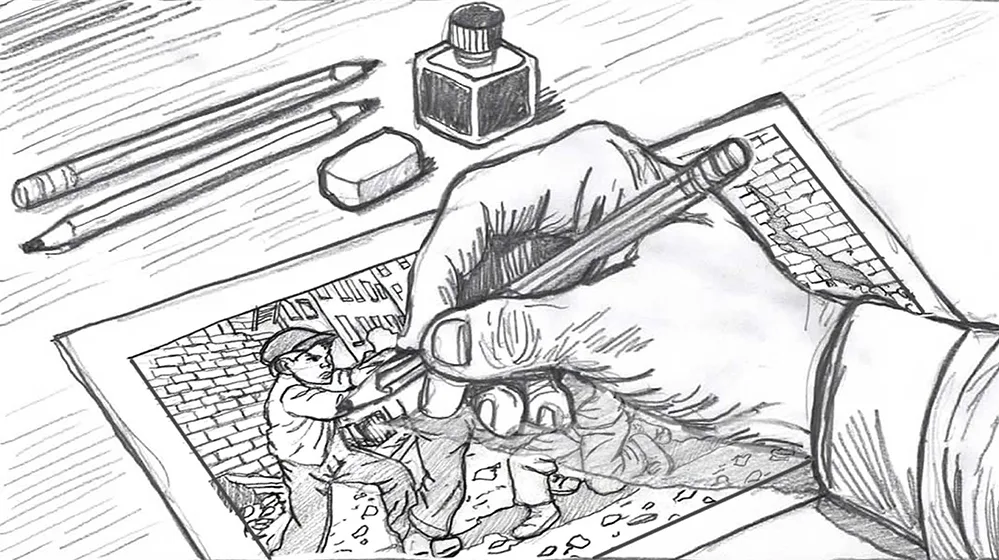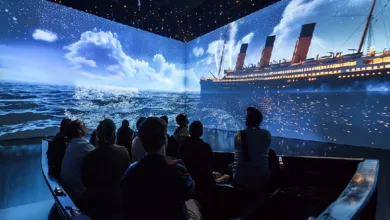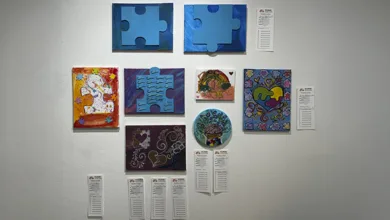KING KIRBY: The Unsung Hero of the Marvel Universe
The true story of Marvel’s mastermind, brought to life on stage.

Before Captain America picked up his shield or Iron Man blasted into multiplexes, before the X-Men gave voice to generations who felt different, or A-list actors clamored to wear the spandex of the Fantastic Four, there was Jack Kirby.
You may not know his name — but you live in the world he imagined. Long before CGI, armed only with a pencil and an unstoppable creative drive, the prolific comic book artist dreamed and sketched the foundation of modern pop culture. His work is evident in big-budget blockbusters, in streaming binge-watches, and on every T-shirt stamped with a superhero logo.
But as Hollywood once again bets on the power of comic book franchises to drive summer box office returns, Kirby’s name largely remains in the shadows — a footnote in the end credits, if it appears at all.
This July, as audiences head to theaters to see Pedro Pascal make his debut as Mr. Fantastic in the latest superhero reboot, they’ll likely stay for the now-obligatory post-credit teaser. What they may not realize is that buried in the scrolling names lies one of pop culture’s most unresolved questions: Who really created the Marvel Universe?
Stan Lee and Jack Kirby are two of the most influential figures in comic book history — but while one name is synonymous with Marvel, the other’s legacy is primarily known to superfans.
While the silver screen shines with superhero stories, a North Texas stage will spotlight the man who drew them into being. With the regional premiere of KING KIRBY, American Chronicle Theatre Company presents the ultimate origin story — that of Jacob Kurtzberg (pen name Jack Kirby), a Jewish kid from New York’s tenements who went on to fight Nazis in real life before battling for creative recognition in an industry he helped shape.
The son of a factory worker, Kirby believed that his self-taught art skills could help him escape a life spent building wealth for others. In 1940, he and Joe Simon co-created Captain America—before the United States had even entered World War II—and, along with Captain America and other titles, became recognized as the “King of Comics.” However, by the 1960s, history seemed to repeat itself.
Kirby was producing page after page of what would become pop culture canon. Under the so-called “Marvel Method,” he often plotted, paced, and illustrated entire issues while Stan Lee added captions and dialogue — and received credit for the story. As Kirby’s characters fueled Marvel’s rise, he remained a ghost behind the panels.
That question—who truly creates the things we love—feels more urgent than ever in the age of AI-generated art and the high demand for content. These are matters of ownership. Who gets paid, recognized, or remembered for their work?
“Kirby’s story isn’t just comic book nostalgia,” says Bren Rapp, producer and founder of American Chronicle Theatre Company. “It’s a lens through which we can examine the value of creative labor — and what happens when a phenomenon eclipses its creators.”

That relevance deepens when considering the context behind Kirby’s creations. As the son of Jewish immigrants, Kirby faced antisemitism both at home and abroad, and those experiences shaped the DNA of his characters. Captain America was a punch in the face to Hitler. The X-Men served as a metaphor for the marginalized.
Unlike the lone-wolf heroes who came before, Kirby’s greatest innovation was community: superhero teams. Whether it was the Boy Commandos, the Fantastic Four, or the team that eventually became the Avengers, Kirby’s characters were outsiders—mutants, weirdos, people pushed to the edges—who only triumphed when they came together.
“He took the hero archetype and rewrote it,” says Rapp. “He showed us that the real strength is unity.”
That message feels more urgent now than ever. In a time of cultural fragmentation and rising antisemitism, revisiting Kirby’s work is more than just a tribute; it’s a form of resistance.
“There are people wearing Captain America T-shirts who don’t even know that character was created in direct response to Jewish hate,” Rapp adds. “It bears repeating.”
KING KIRBY, by Crystal Skillman and Fred Van Lente, opens with a special Fourth of July matinee at the Cox Playhouse in Historic Downtown Plano. It will feature free Captain America-themed concessions and giveaways and will run for eight performances through July 12.
Presented as a live theater motion comic that combines multimedia artwork, projections, shadow puppetry, voiceovers, and live performance, this production pays tribute to the comic book form and brings to life the man who made superheroes significant.
** The show contains mature language and is not suitable for young audiences. Parental guidance is recommended.
Where: Cox Playhouse | 1517 H Avenue, Historic Downtown Plano
When: July 4 – July 12 | Click the link below for tickets and more information.
Cost: $15
Website: www.americanchronicletheatreco.com





